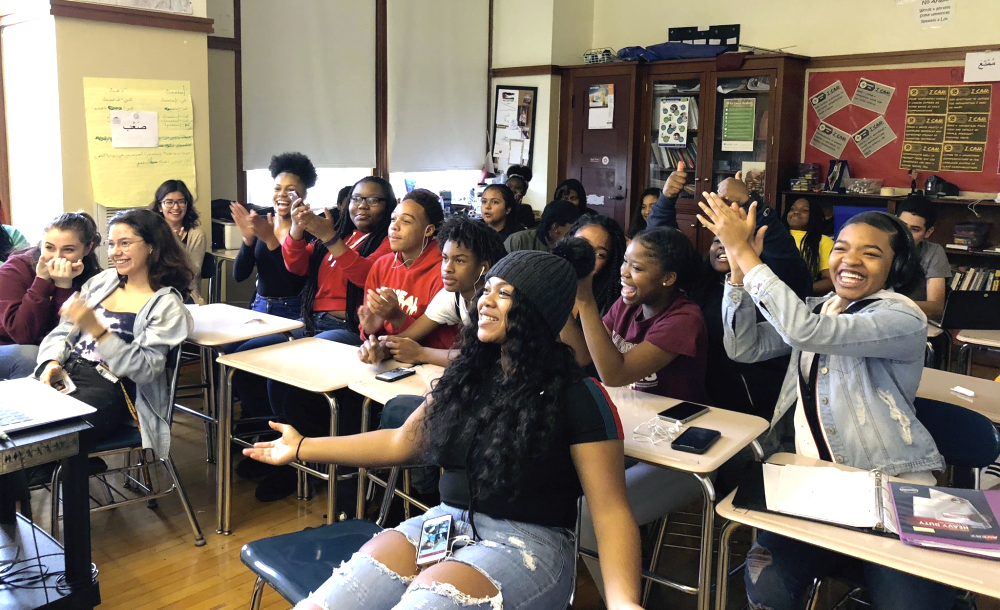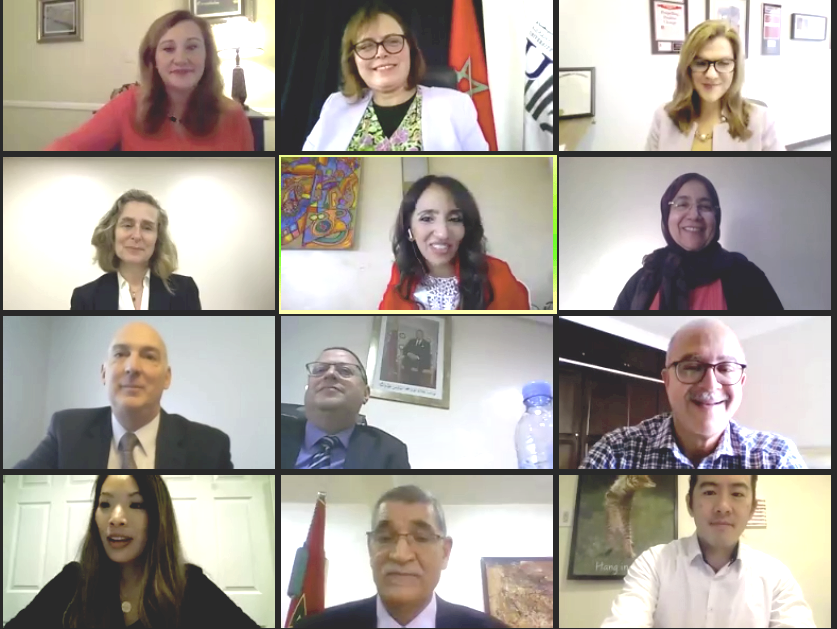
Lisa C. Roberts
Students at Lindblom Math and Science Academy on the South Side of Chicago cheer as they link by videoconference to students in Morocco. The two groups of students created a museumlike website together in a virtual exchange program supported by the Stevens Initiative.
In 2016 students in several of Chicago’s least affluent public schools struck up an online connection with students in Casablanca, Morocco. Together they worked on a project to create an online “museum,” a gallery of exhibits, including one on dinosaur fossils discovered in Morocco in 2008. Students dubbed this dinosaur — the Spinosaurus — North Africa’s answer to Tyrannosaurus Rex.
In the process of creating the STEAMuseum, students met virtually across borders, collaborated with people from a different culture, widened their understanding of the world and developed new communication and language skills.
“Those personal connections were in some way the most valuable thing in the whole experience,” said Lisa Roberts, STEAMuseum project director in Chicago.
It’s one of many projects supported by the Stevens Initiative, which helps young people develop global competence and build career skills. The initiative, begun in 2015, is sponsored by the U.S. State Department and administered by the Aspen Institute. It is named after U.S. Ambassador J. Christopher Stevens, killed in Libya in 2012.
“The kids need to learn how to look past differences and find a level of respect and empathy so they can [in the future] solve the problems of the world together,” Roberts said. “Being able to talk to one another is an important global competence.”
They were practicing in a very real-world way, she said.
“This project exposed students to diverse cultures, said Dalal Chaker, an English teacher in Casablanca, in a video describing the project. “This allows them to be open-minded and accept the other.”
By summer 2022, the Stevens Initiative plans to expand throughout the United States and reach 43,000 young people in 16 countries in the Middle East and North Africa. Youth-serving organizations are invited to participate in some of its projects.
New project links universities in Georgia, Casablanca
One of its newest programs involves students at Kennesaw State University, just north of Atlanta, and students at Hassan II University in Casablanca. They will explore women’s leadership through research, analysis and storytelling in a project called the Women’s Leadership Virtual Exchange.
An initial event on Wednesday included the female presidents of both universities.
“We want to encourage our women students to be leaders,” said Aawatif Hayar, president of Hassan II, during the online event.

Screenshot from Zoom meeting
Faculty and students at Kennesaw State University in Atlanta joined those at Hassan II University in Casablanca, Morocco, as part of the Women’s Leadership Virtual Exchange.
Different workplaces — from start-ups to colleges to the military — need different kinds of leadership traits, said Pamela Whitten, president of Kennesaw State University. But listening to others and understanding others’ points of view is necessary even while making hard decisions that not everybody will like, she said.
Most Stevens Initiative projects bring together youth from the United States and the Middle East and North Africa for cross-cultural learning via online, face-to-face, small-group dialogue. More information about best practices in virtual exchange and cross-cultural communication can be found here.
Funding for the Stevens Initiative is provided by the U.S. government. The initiative is also supported by the Bezos Family Foundation and the governments of Morocco and the United Arab Emirates.





























